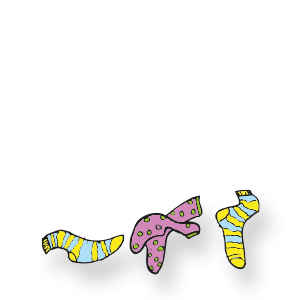

The stories we tell ourselves!

Written by Stacie Glass, Ollie Coach.
Stories
The ‘stories’ we tell ourselves keep us stuck.
I say ‘stories’ because we all have our unique perspective of reality and this perspective creates our thoughts and our emotions we attach to our reality. We all have our own versions of reality tunnels – our life experiences build the lens we see, hear and feel that filter our view of the world. Depending upon our experiences, the bricks in which build our tunnel can be limiting.
A tunnel is the metaphor Ollie Coaches use to describe whether our world view, perspective, beliefs and thoughts are narrowing/widening our ability to see potential and possibility in our lives and the world around us. This is where the term ‘limiting beliefs’ come from; our beliefs can either limit us/keep us stuck or they can empower us to go after our dreams.
Research has shown that on average humans have 6,200 thoughts a day and it is estimated 80% of them are negative and 95% are repetitive thoughts. Many of our behaviours, emotions, and responses are automatic, and keep our attention so engaged that we don’t have any capacity left to notice when that thought, emotion or response happened. We end up responding before noticing the sensation or thought that stimulated a response. Once we are engaged in the response or reaction, the opportunity to notice and change the response is lost (think about the last time you shouted at your partner or child and then immediately regretted it).
How often do you notice your thoughts and their ‘quality’? If your answer is not very often then you’re not alone. Our minds are wired to make us believe our thoughts are truth and they are who we are. To observe our thoughts is like watching the clouds pass in the sky and even on the rainiest days knowing the blue sky is always there beyond the clouds. The blue sky is the mind, the clouds are our thoughts.
The ability to become the observer of your ‘stories’ and your behaviour is a vital step in changing your behaviour and emotional reactions.
Essentially, to notice the quality of our thoughts, we need to become the observer of our minds instead of identifying with the thoughts. It takes daily practice to really notice and observe the nature of our thoughts but by doing so we become more self-aware and this creates more choice of how we want to respond to the stories/thoughts. Becoming the observer of our thoughts requires new neural pathways in the brain that act as a monitoring system so that you get the warning before the automatic response happens to choose how to respond.
One thing that has drastically improved my ability to observe my thoughts is practising meditation and mindfulness. I was introduced to meditation many years ago when I started therapy for childhood trauma of sexual abuse in 2011. I started with 5 minutes a day but committed to each day to do this for myself and what I didn’t expect to come from it was improved self-love. I hadn’t even noticed that my thoughts were self-loathing and very self-critical until I began to take this time each day for myself.
I know that in the world of home-schooling because of the on-going pandemic that time is limited but I also know your mental well-being is the most important thing to you right now. If you can carve out 5 minutes each day to be alone and just focus on the in-breath (4 seconds) and prolonging the out-breath (6-8 seconds), not only will this calm your nervous system, it will ultimately give you some mental space to deal with the rest of your day in a calmer and grounded way. If you did this each day for a week, I wonder what the differences would be that you would notice.
You might have heard the saying “you can’t pour from an empty cup” – we all need reminders to look after ourselves so that we can better help others. One of the benefits of practising this process over time is that you realise that you can sit and listen without responding to the thoughts, or the reactions to those initial stories.
The lovely thing about becoming aware of the ‘stories’ we tell ourselves is that if we recognise they are stories then we can recreate the story line to what we want it to be.
Is there a story in your mind that you can bring to your attention now?
What evidence do you have that the story is true?
How can you rewrite that story to take action towards what you want?
Write down these answers and keep track of them over time and notice what changes.
Stacie Glass, Ollie Coach
Stacie is a registered midwife and has worked in the NHS since 2003 and in 2015 did research into mental health screening during pregnancy for a Master’s degree. She has always had an interest in psychology and mental wellbeing.
“I have been on the other side of therapy as the client for many years for my trauma of childhood sexual abuse which only makes me more passionate to help others heal emotionally/mentally. I am writing a book about life after sexual abuse in the hope to inspire others to speak their truth and find their own healing path to the life they deserve. Both my personal experience of childhood abuse and my passion for helping others with their mental/emotional wellbeing led me to where I am now becoming an Ollie Coach.”
To get in contact with Stacie, email Stacie.glass@ollieandhissuperpowers.com

